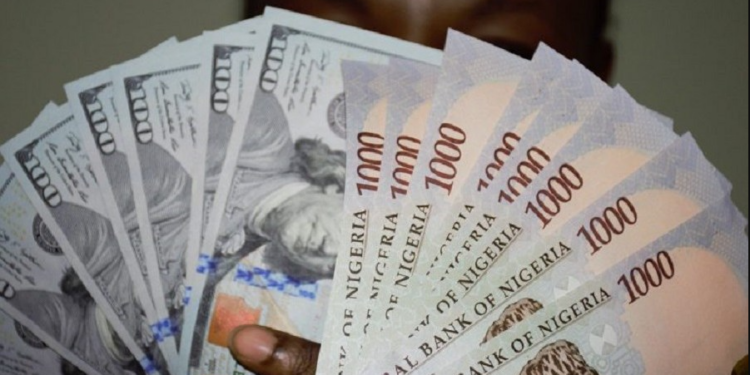
The Central Bank of Nigeria (CBN) has issued a circular to Bureau De Change operators (BDCs), informing them of the sale of $10,000 to each BDC at a rate of N1,101/$1.
In a circular seen by Nairametrics, each BDC is instructed to sell the dollars to eligible customers at a rate not exceeding 1.5% above the purchase price.
This suggests BDCs are not expected to sell above N1,117/$1. The selling rate is below the N1,251.05/$1 recorded at the end of last week, according to data from the Nigerian Autonomous Foreign Exchange Market (NAFEM).
The circular reads:
- “We write to inform you of the sale of $10,000 by the Central Bank of Nigeria (CBN) to BDCs at the rate of N1101/$1.
- “The BDCs are in turn to sell to eligible end users at a spread of NOT MORE THAN 1.5 percent above the purchase price.”
In the circular, CBN provided a list of 1588 eligible BDCs. If all the eligible BDCs paid for the dollar allocation from the CBN, it would likely cost the apex bank about $15.88 million.
This is the third attempt by the CBN to sell FX to BDCS after a prolonged period of suspension by the central bank in 2021. The ban was lifted earlier in the year following the revocation of licences of over 4173 BDC operators in February.
The first attempt was in February, with the apex bank selling $20,000 to each BDCS at the rate of N1,301/$. By the second attempt, the bank reduced the allocation by 50% and sold FX at a rate of N1,251/$1. In less than three months, the CBN has influenced an appreciation of naira by 18.17% against the US dollar.
The Association of Bureau De Change Operators of Nigeria (ABCON) recently appealed to the CBN to adjust and lower its applicable exchange rate downward below the N1,251/$ it pegged for the BDC operators, as it has become expensive. The request by the BDCs occurred amid historic development where for the first time in 15 years, the parallel market rate of N1,235/$ is lower than the official rate of N1252/$, which is the applicable buying exchange rate for the BDCs.
- The resumption of forex sales to BDCs indicates that the apex bank is refocusing on enhancing liquidity in the retail segment of the forex market.
- Previously, price arbitrage was a significant reason for the prohibition of forex sales to operators during Godwin Emefiele’s tenure, a time when the exchange rate was fixed.
- However, with the exchange rate now being “market-determined” under a new forex regime, the apex bank believes that operators no longer have the incentive to engage in arbitrage by purchasing at lower rates from the CBN and selling at higher rates in the parallel market.
- By enhancing liquidity, the apex bank aims to stabilize the forex market, narrow the gap between official and parallel market rates, and ultimately reduce the volatility of exchange rates.
- This strategy is expected to make forex more accessible to retail and small-scale enterprises, fostering a more transparent and efficient market.
- If sustained, Nairametrics projects that the impact of improved liquidity could lead to an even stronger Naira in the short term but at a cost as the foreign exchange reserve recently dipped by about $1.02 billion within 18 days.



